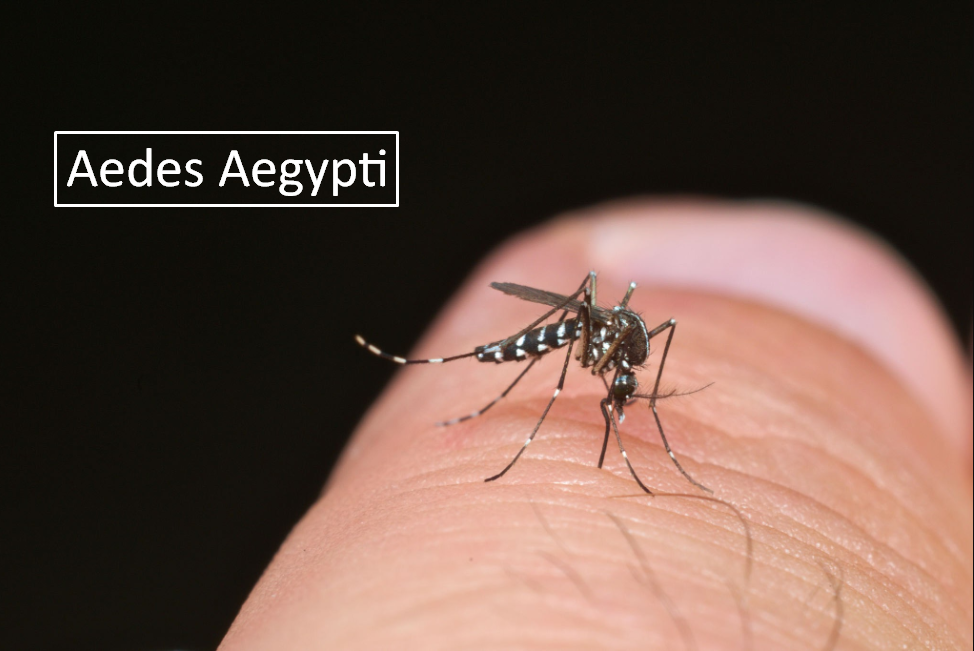Dengue fever, also called as break bone fever is a mosquito-borne viral illness.Dengue Fever is caused by the dengue virus, which is transmitted to humans through the bites of infected Aedes mosquitoes.It is common is tropical areas of world.Aedes mosquitoes is mostly active during day time.You can reduce the risk by avoiding mosquito bites especially during the day.
Causes of Dengue Fever
The Dengue Virus
The dengue virus comes in four distinct serotypes, DENV-1, DENV-2, DENV-3, and DENV-4. Being infected with one serotype provides lifelong immunity to that serotype but doesn’t protect against the others.
Transmission Of Dengue Virus
Aedes mosquitoes, particularly Aedes aegypti, are responsible for transmitting the virus. When an infected mosquito bites a person, it can transmit the virus, leading to the onset of the disease.

Contributing Factors
Several factors contribute to the increased prevalence of dengue, including urbanization, population growth, and climate change. These factors create favorable conditions for the Aedes mosquito to thrive, leading to more dengue cases.
Symptoms and Diagnosis
Dengue fever is characterized by a
sudden onset of high fever
severe headaches
joint and muscle pain
Pain behind eyes
skin rash (appears 2-5 days after the onset of fever)
bleeding tendencies (Nose of gym bleeding)
These symptoms can vary in severity, and some individuals may experience mild discomfort while others suffer from severe manifestations.
Diagnosis is typically made through clinical evaluation and blood tests, with early detection being crucial for effective management and recovery.
Treatment and Management
Available Treatments
There is no specific antiviral treatment for dengue fever, so supportive care is essential. Patients are advised to stay well-hydrated, rest, and manage pain and fever with over-the-counter medications like acetaminophen.
Home Remedies
Home remedies like drinking papaya leaf juice and neem leaves can help manage symptoms, but these should be used in conjunction with medical advice.
Preventing Dengue Fever
Preventing dengue fever primarily involves reducing exposure to mosquitoes.
Preventing Mosquito Bites
Protective measures include using mosquito repellents, wearing long sleeves and pants, and using bed nets to sleep.
Eliminating Breeding Sites
Preventing dengue also requires eliminating breeding sites for Aedes mosquitoes, such as standing water in containers or blocked drains.
Dengue Fever Worldwide
Dengue fever has a significant global impact. The disease is endemic in many countries, particularly in South and Southeast Asia, the Pacific, and the Americas. As climate change continues to affect these regions, the geographic spread of dengue is also increasing.
Challenges and Research
Vaccine Development
One of the major challenges in dengue control is the development of a safe and effective vaccine. Several vaccines are in development, and some have been approved for use in certain countries.
Ongoing Research
Continued research is crucial for understanding the virus, its transmission, and the dynamics of dengue epidemics. Researchers are working on innovative strategies to combat the disease.
Dengue Fever vs. Other Mosquito-Borne Diseases
Dengue fever shares some similarities with other mosquito-borne diseases such as malaria and Zika. However, there are distinct differences in their symptoms, treatment, and prevention methods.
Personal Experiences with Dengue
Understanding the impact of dengue fever on individuals and families is essential. Real-life stories from dengue survivors highlight the physical and emotional challenges they face, emphasizing the importance of prevention and early detection.
Conclusion
In conclusion, dengue fever is a global health concern that requires our attention. Prevention, early detection, and ongoing research are vital in the fight against this disease. By understanding dengue fever, we can take steps to protect ourselves and our communities.
FAQs
Q1: Is dengue fever a life-threatening disease?
Dengue fever can be life-threatening, especially if it progresses to severe dengue. Early detection and proper medical care are crucial for a good prognosis.
Q2: Are there vaccines available for dengue?
Yes, there are vaccines available in some countries, but they may not be universally accessible. Consult with a healthcare professional for guidance.
Q3: Can dengue be completely cured?
There is no specific antiviral cure for dengue. Treatment focuses on managing symptoms and preventing complications.
Q4: How can I protect myself from dengue while traveling to affected regions?
Use mosquito repellents, wear protective clothing, and stay in accommodations with proper screens and air conditioning. Avoid outdoor activities during peak mosquito activity times.
Q5: What are the long-term effects of dengue fever?
In some cases, dengue can lead to long-term complications, such as joint pain or fatigue, which may persist for weeks or even months. Consult a healthcare professional for guidance if you experience prolonged symptoms.
